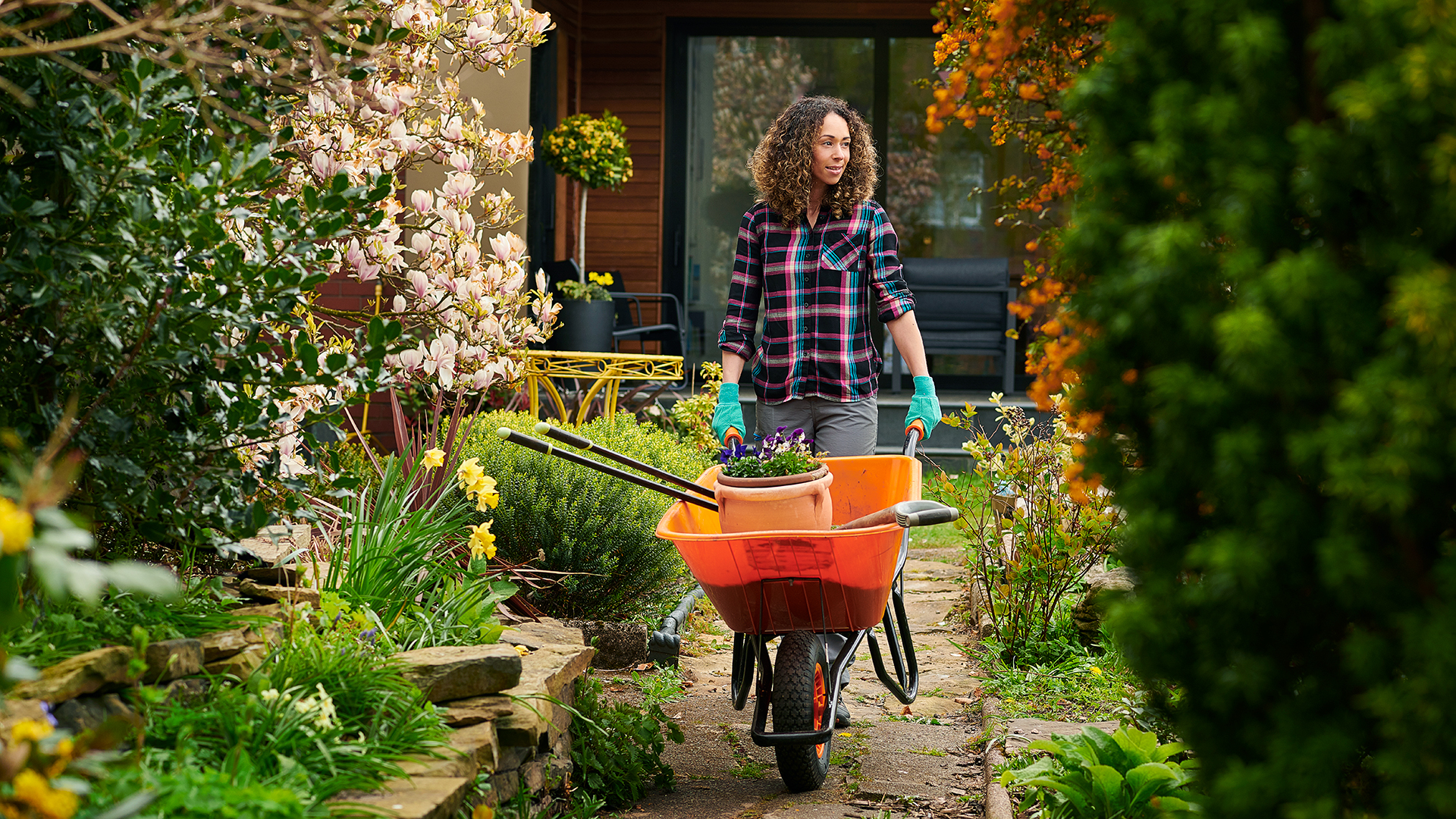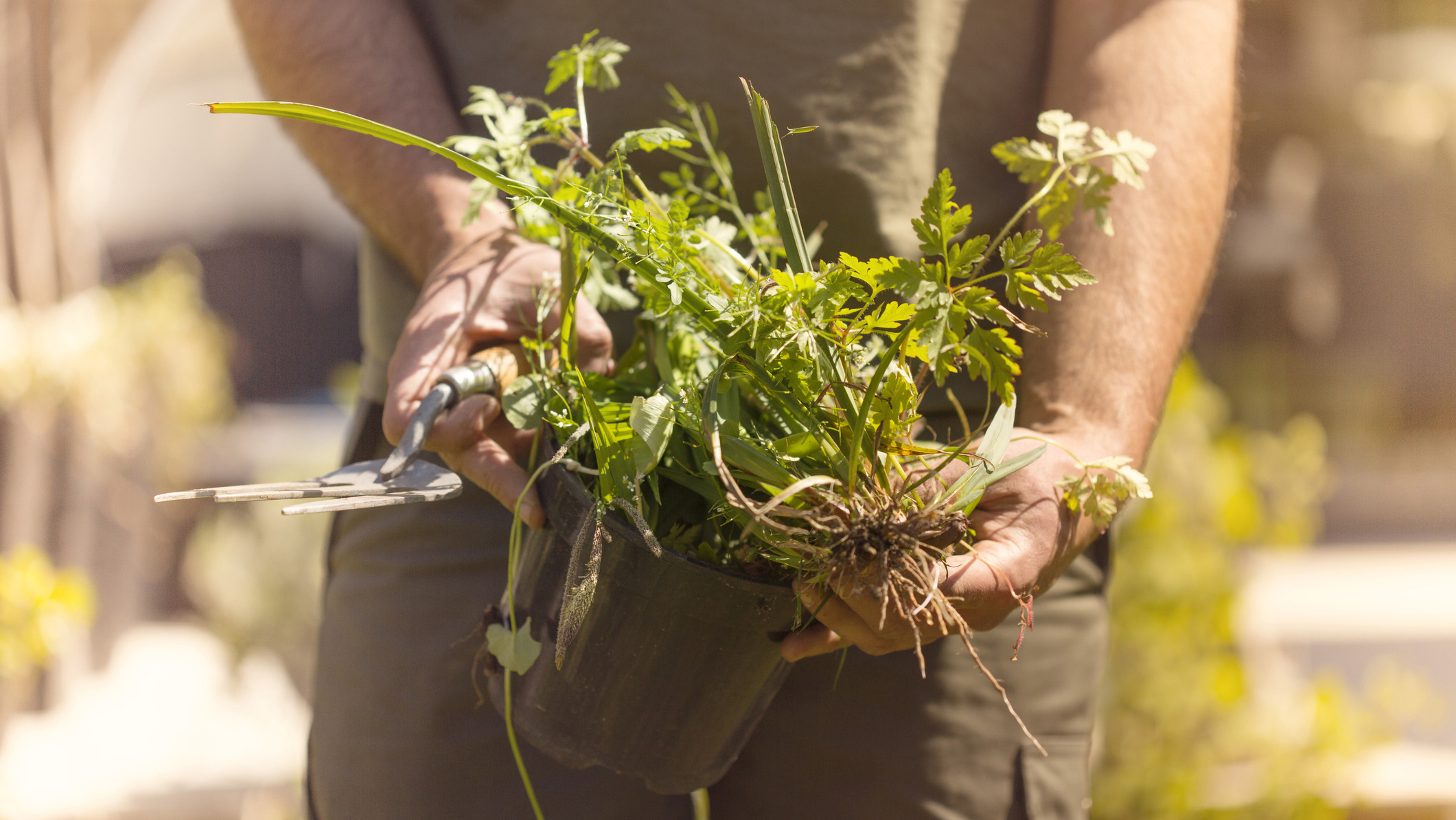What to do to your garden in the spring
Unsure what to do to your garden in the spring? We ask experts for ideas to give your garden a new lease of life

Looking for simple ideas for what to do to your garden in the spring? You’re in the right place. The extra daylight and warmer temperatures bring the first stirrings of life in the garden. Spending time outside is a fantastic way to enjoy what this season has to offer and give your mood a lift. Best of all, you’ll likely have more energy at this time of year to take on new projects and transform your outdoor space.
There is so much happening outside that it can be tricky to know where to start. We asked the experts about what to do to your garden in spring to help you make the most of the season and lay the groundwork for the coming months. Take small steps now so that by summer your garden will be a blooming haven for you and for wildlife.
If you’re a fan of a traditional lawn, this is a good time to get mowing. Check out our guide to the best gas lawn mowers or the best electric lawn mowers to set your lawn up for success throughout the year. However, why not try experimenting with leaving a small square of grass to grow as well? This will create a mini wildflower meadow that will attract bees and other insects that will be beneficial for your garden. Meanwhile, the best tillers and the best hedge trimmers will also help keep your garden healthy and tidy throughout spring,
Whether you’re a gardening newbie or a seasoned pro, we’ll walk you through what to do to your garden in spring.
What to do to your garden in spring
Looking for inspiration for what to do to your garden in spring? We asked Roz Vincent, Royal Horticultural Society (RHS) qualified gardener for her expert advice on five simple projects that will help you make the most of this special season.
1. Cut plants back
Removing dead plant material allows air and light to circulate, vital for new growth. Think of it as a spring clean for your garden. Leaving seed heads on over winter can give structure to your garden and provide shelter for wildlife. “As soon as you see signs of new growth, chop plants back ready for the fresh new leaves to emerge. If you leave it too long, it can be tricky to remove the old stems without damaging the new ones,” says Roz.
Sign up to receive the latest news, reviews, buying guides and deals direct to your inbox

2. Sow seeds
Looking to create an impact on a budget? Growing from seed is an affordable way to add interest and brighten up your space with stunning flowers in an array of colors. “Sow annual plants such as cosmos, rudbeckia, and sweet peas now to give an injection of color to your garden later in the year,” says Roz. You may want to experiment with growing vegetables from seed too. You’ll be pleased you did when you taste your home-grown produce. Roz recommends following the advice on the seed packet as timings will vary depending on your local climate.
3. Keep an eye on frost
Frost is the biggest threat to your garden at this time of year. “Keep a close eye on your local weather forecast. If temperatures are close to freezing, protect your seedlings and tender plants by moving them into a greenhouse or cold frame or covering them with horticultural fleece,” recommends Roz.
“Spring is when the foundations for the rest of the year are laid. This is when all the hard work happens, and, if you get it right, the summer months are much easier and you’ll have the opportunity to sit back, relax and enjoy the fruits of your labor,” says Roz Vincent.
4. Nourish your soil
“It’s important to remember that plants want to grow, so as long as you provide them with water, light, and nutrients in the soil, you can’t really go wrong.” Adding a thick layer of well-rotted manure or compost, known as a mulch, enhances the quality of your soil and creates fertile conditions for plants to thrive. “Adding mulch in spring helps the ground to retain the winter moisture. This reduces the need for watering through the warmer months. Plus, using a bulky organic material will increase the water-holding capacity of sandy soils, and break up heavy, clay soils,” says Roz. This is a great time-saving tip too, especially if you’re prone to forgetting to water over summer.
5. Get weeding
If you want to keep on top of the weeds, it’s best to start early before they overtake your plot. “It’s much easier to dig out those pesky weeds now before your plants get going and you have to try and weed around them. Annual weeds can be quickly hoed off and left on the soil on a warm day, but you’ll need to dig out perennial weeds (ones that come back every year) from the root,” advises Roz.
6. Make plans
Take the time to plan ahead and you’ll thank yourself in the seasons to come. “Make a note of all the spring bulbs that you’re enjoying in your own garden, in other people’s gardens, or on Instagram and write down their names so that you can remember what made you smile when it’s time to order spring bulbs in September,” recommends Roz.
And finally, don’t forget to sit back and enjoy everything this special season has to offer.
Discover more guides for the garden…
Best chainsaws
Best hot tubs
Best swim spas
Best water heaters
Louise Bond is a UK-based writer and the founder of The Cove Copy. She has been published in The Guardian, Breathe, Fit & Well, Top Ten Reviews, and more. When she’s not writing, you can usually find her out in nature, whether hiking in the woods or pottering in the garden.

